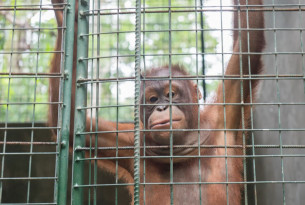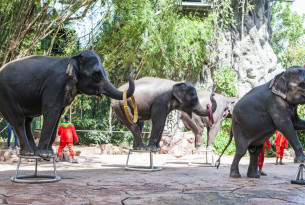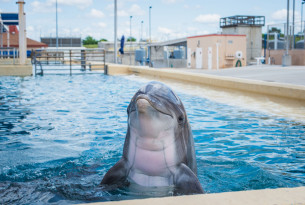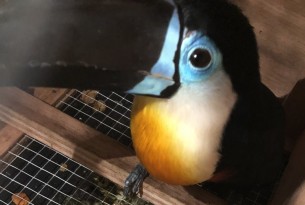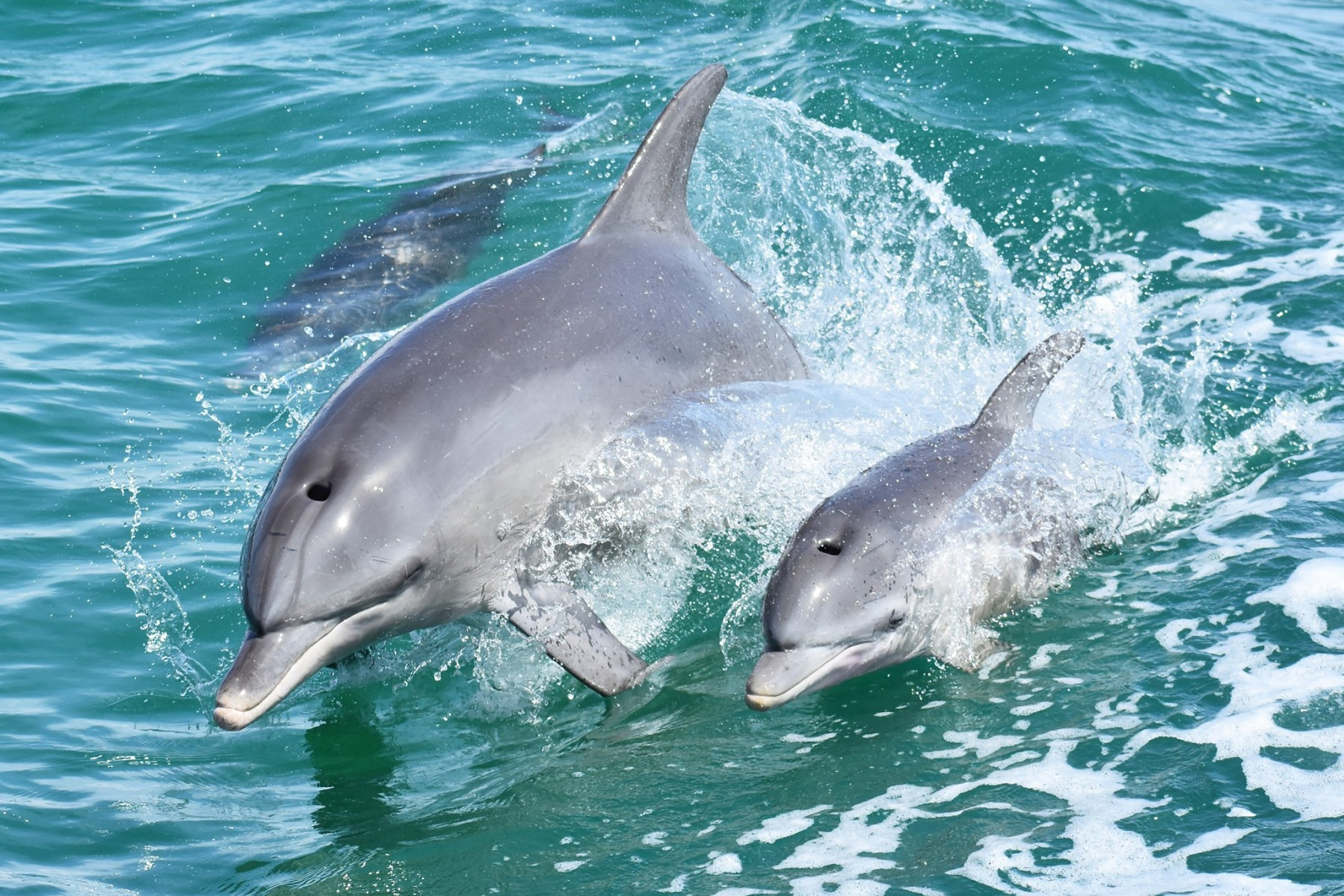
Dutch travel association to label interaction with dolphins as unacceptable
The new year starts with exciting news for captive dolphins as the Dutch Association of Travel Agents and Tour Operators (ANVR) launches their brand-new animal welfare guidelines. An important change is the advice to travel companies to stop offering or promoting attractions where dolphins and other cetaceans can be touched or are forced to perform tricks.
ANVR has updated its animal welfare guidelines in collaboration with World Animal Protection with new guidance that it is ‘unacceptable’ for travel companies to offer or promote attractions where there are shows or direct interactions with dolphins and other cetaceans.
These guidelines are a new landmark in ANVR's animal-friendly journey and another huge step forward for wildlife protection, vital to create a better future for both animals and people.
Entertainment with dolphins and other cetaceans is now deemed ‘unacceptable’ by ANVR and member tour operators are advised not to offer or support these activities any longer.
Build back better
Given the global COVID-19 pandemic and the tremendous impact on the tourism industry, it's now more critical than ever to end the exploitation of wild animals and other cruel wildlife attractions for good. Over the past year, our Dutch office has assisted ANVR in reviewing and extending both the animal welfare guidelines and the training.
The newest set of animal welfare tools was presented in mid-December during a webinar for ANVR members.
Leading example
ANVR, founded in 1966 is not the first travel association that has set animal welfare guidelines for its members. ABTA, the UK’s travel association, launched their ‘Global Guidance for Animals in Tourism’ in 2013. The ABTA guidelines were used as a basis for ANVR's original animal welfare guidelines but with an extended list of unacceptable practices.
Late in 2019, the second edition of the ABTA Animal Welfare Guidelines were announced. ANVR again extended the list with ‘unacceptable practices’. All wildlife entertainment practices involving performances or direct interactions are now deemed ‘unacceptable’ by ANVR and their tour operators are advised not to offer or support these activities any longer.
They now include:
- All direct tourist contact with dolphins and cetaceans
- All performances with wild animals
Although these guidelines are voluntary, they will impact Dutch travel corporations and their advice to their members. The guidelines are a great example for travel trade associations all over the world on what should be considered acceptable and unacceptable to offer when it comes to animal experiences.
Katheryn Wise, Wildlife Campaigner at World Animal Protection UK said: "This is really exciting news from ANVR which recognizes the inherent, and often hidden, cruelty in the captive dolphin entertainment industry. We hope that ABTA will follow in the footsteps of ANVR and offer their members stronger advice against the promotion and sales of tickets that drives the demand for captive cetacean interactions."
Frank Oostdam, director ANVR said: "As a travel trade association, we are constantly working on ‘better holidays’ together with the 290 member tour operators we represent. A world that connects people and destinations and creates pleasant experiences, a world that respects, protects and positively contributes to people, culture, nature, animals and the environment. This is yet another step in that responsible and sustainable direction."
A shift in the Canadian travel industry
Back home, we’ve seen a shift in Canadian attitudes on the use of wildlife for tourism entertainment. Repeated polls conducted by Kantar found a 10% decline in Canadian acceptance of swim with dolphin experiences between 2014 and 2019. Similarly, polling conducted by Northstar Research Partners in 2019 found 30-40% of Vacation Planners report that dolphin-related activities are less acceptable now vs 3-5 years ago. As well, in 2019 the Canadian government passed legislation to ban the display, breeding, trading of cetaceans (dolphins, whales and porpoises) for entertainment purposes. We have every reason to believe that these trends will continue after the pandemic given increased concern about health and safety and the growing awareness of the role of wildlife exploitation in zoonotic disease risk and pandemics.
As a result of the mounting scientific evidence against keeping dolphins in captivity and the changing public attitudes towards their exploitation for entertainment, Canadian travel companies are responding with commitments to change their supply chains. In 2019, Air Canada, Transat, Sunwing and have all committed to ending the selling and promotion of tickets to captive dolphin venues, with WestJet confirming their commitment in late 2020. As well, World Animal Protection worked with leading travel brands such as G Adventures and The Travel Corporation to strengthen their animal welfare policies to make clear that captive dolphin experiences are not acceptable. The commitment made by these Canadian travel companies will help put an end to the cruel dolphin entertainment industry and continue to shift tourist demand toward more ethical experiences.
Dolphins are wildlife, not entertainers
In their natural environment, dolphins swim 100 square kilometres of ocean freely, sometimes much more. But held in tiny barren, concrete tanks 200k times smaller than their natural space, exposed to infection and chemicals and often drugged to cope with captivity – they sadly can only swim a few metres at a time. The anxiety and stress can cause them to self-mutilate and become aggressive – all in the name of entertainment and profit.
Our Wildlife. Not Entertainers campaign seeks to put an end to the suffering of wild animals in tourism. We are building on a worldwide movement to protect wild animals and stop the demand for and the supply of cruel wildlife entertainment. ANVR’s commitment moves us closer to a future where all cetaceans are able to live in the wild, where they belong. Dolphins are wildlife, not entertainers.
Click here to learn more about our Wildlife. Not Entertainers campaign.


